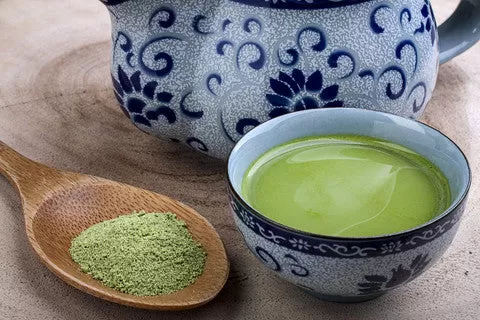- 0086-571-85302990
- sales@greenskybio.com
Why Do I Feel Sick After Drinking Green Tea?
2025-05-30
Green tea is often celebrated for its numerous health benefits, from its high antioxidant content to its ability to boost metabolism and provide a gentle energy lift. Despite these advantages, some individuals experience discomfort or feel sick after consuming green tea. Understanding why this happens can help address the issue and improve your experience with this popular beverage.
The Composition of Green Tea
Green tea contains several compounds that contribute to its health benefits. These include catechins (antioxidants such as EGCG), caffeine, theanine, minerals, and vitamins. While most people tolerate these components well, certain individuals might experience adverse reactions due to sensitivities or specific health conditions.
Possible Causes of Feeling Sick
1. Caffeine Sensitivity:
Green tea, while lower in caffeine than coffee or black tea, still contains this stimulant. People who are sensitive to caffeine might experience symptoms such as dizziness, headaches, or anxiety after drinking green tea. Caffeine sensitivity varies widely among individuals, and even a moderate amount can cause discomfort for some.
2. Tannins and Stomach Irritation:
Green tea contains tannins, which can increase the production of stomach acid. This can lead to digestive issues such as nausea or stomach ache, especially if consumed on an empty stomach. Tannins are a type of polyphenol, and while beneficial in moderation, they can be harsh on the stomach lining if consumed excessively or without food.
3. Iron Absorption Interference:
Tannins and catechins in green tea may interfere with iron absorption, particularly non-heme iron found in plant-based foods. Individuals with anemia or those who rely heavily on vegetarian sources of iron may feel weak or fatigued after drinking green tea. This can also exacerbate symptoms if green tea is consumed around meal times when maximum iron absorption is desired.
4. Allergic Reactions:
Though rare, some people may have allergic reactions to compounds in green tea. Symptoms can include rashes, dizziness, or difficulty breathing. It's important to recognize these symptoms early and consult with a healthcare professional to determine if you're allergic to any components of green tea.
5. Low Blood Sugar:
Drinking green tea on an empty stomach can sometimes lead to low blood sugar levels, especially for individuals susceptible to fluctuations in blood sugar. This can result in feelings of nausea or dizziness, similar to the sensations experienced during fasting or after strenuous exercise.
Solutions and Recommendations
1. Moderate Your Intake:
If caffeine sensitivity is an issue, consider limiting the amount of green tea you consume. Switch to decaffeinated green tea, which retains most of the beneficial compounds while minimizing caffeine-related side effects.
2. Pair Green Tea with Food:
Drinking green tea with or after meals can help mitigate stomach irritation caused by tannins. The presence of food can buffer stomach lining and neutralize excessive acid production. Try pairing green tea with snacks or meals containing healthy fats and proteins, which can also enhance satiety and energy levels.
3. Consider Meal Timing and Iron Levels:
To minimize interference with iron absorption, avoid drinking green tea during or immediately after meals rich in iron. You can plan to drink it a few hours before or after eating. Furthermore, regularly monitoring iron levels, especially if you are vegetarian or at risk for anemia, can help balance your nutrient intake effectively.
4. Experiment with Varieties:
Different green tea varieties have varying compositions. Sencha, matcha, or genmaicha may offer differing levels of tannins and caffeine. Experimenting with these varieties might help identify a type that suits your tolerance better. Furthermore, brewing methods can influence the strength of green tea—consider shorter steeping times for a milder taste.
5. Consult a Healthcare Professional:
If symptoms persist despite making adjustments, it’s wise to consult a healthcare provider. Allergies, underlying health conditions, or interactions with medications could be contributing factors, and professional advice can guide appropriate remedies or alternatives.
Conclusion
While green tea promises a myriad of health benefits, it can occasionally cause discomfort for some individuals due to caffeine sensitivity, tannin-induced stomach irritation, or other factors discussed above. Understanding why these symptoms occur enables you to tailor your green tea consumption to your body's needs, ensuring you can continue enjoying its benefits without compromise.
By moderating intake, pairing with food, considering tea varieties, and seeking professional guidance when needed, the effects of green tea can be managed effectively. Integration of these strategies allows both tea enthusiasts and casual drinkers to enjoy green tea's renowned benefits, making it a comfortable part of a balanced lifestyle. Ultimately, a mindful approach to consumption can turn green tea into a daily health-enhancing ritual, minus the discomfort.
-
Green Tea: What It Does for Your Body
2025-05-30
-
Is Green Tea Good for Your Kidneys?
2025-05-30














